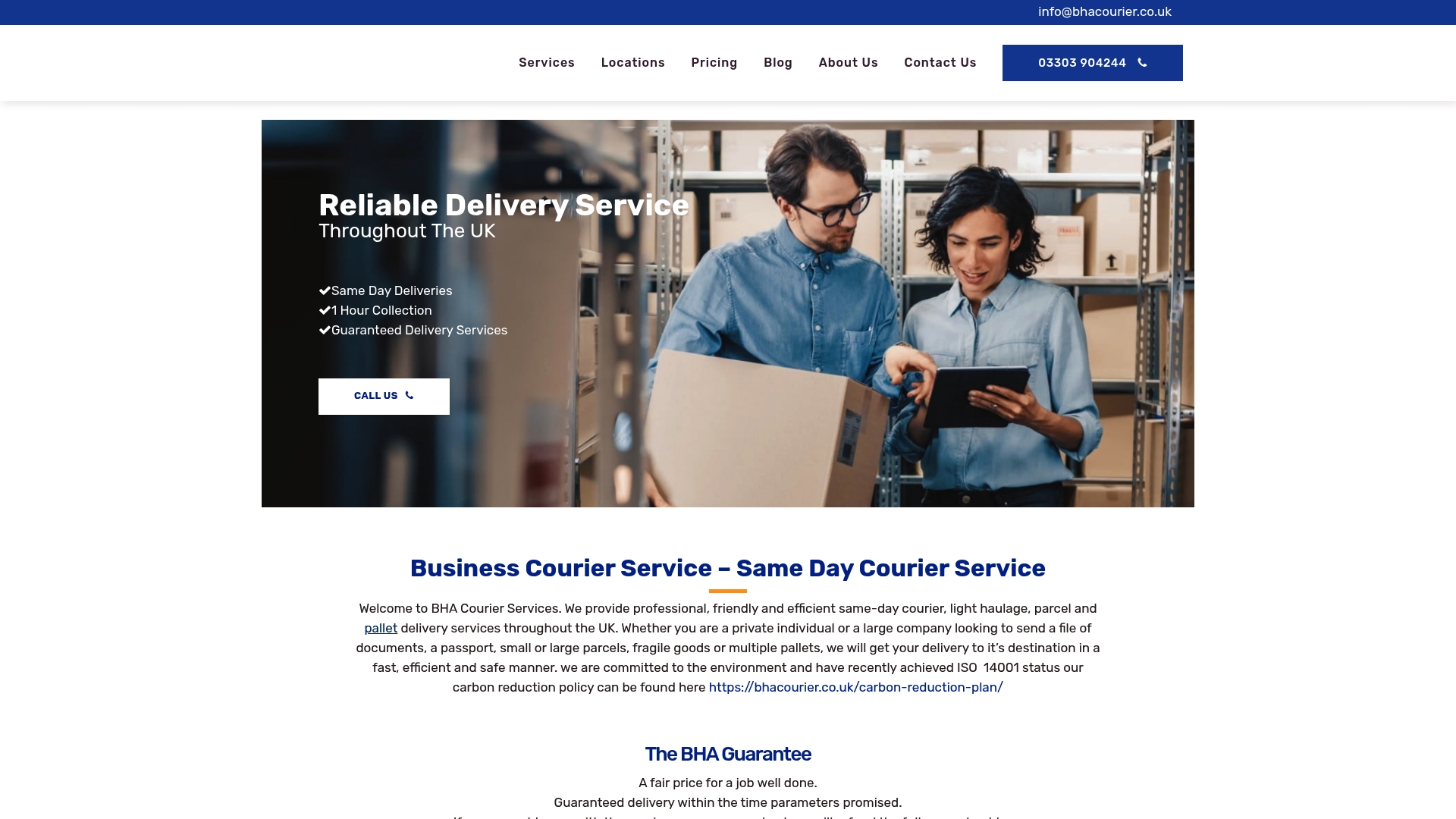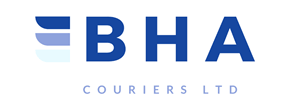
03 Aug Industry Compliance Standards 2025: A Guide for UK Businesses
Industry compliance standards are changing faster than ever for UK businesses. The sheer volume of new regulations is staggering and compliance failures cost UK businesses over £36 billion each year. Many believe compliance is all about ticking boxes and endless paperwork. The reality is very different as staying ahead now means using innovative tech and flexible planning instead of relying on old routines.
Table of Contents
- Understanding Industry Compliance Standards
- Key Compliance Requirements For UK Businesses
- How To Meet Compliance Standards In 2025
- Common Mistakes And How To Avoid Them
Quick Summary
| Takeaway | Explanation |
|---|---|
| Compliance is a dynamic process | Businesses must adapt to evolving regulations and technological changes continuously. Flexibility in compliance strategies is essential for ongoing success. |
| Integrate compliance into core operations | Compliance should be embedded within all departments, creating a culture of accountability and ensuring everyone understands their regulatory responsibilities. |
| Leverage technology for compliance management | Advanced software solutions can automate tracking, reporting, and risk assessment, enhancing the efficiency and accuracy of compliance efforts. |
| Conduct regular risk assessments | Ongoing evaluations of potential risks and comprehensive documentation are crucial to identify gaps and avoid compliance failures. |
| Embrace continuous learning | Organizations must invest in training and development programs to stay updated with the latest regulatory changes and improve compliance practices. |
Understanding Industry Compliance Standards
Industry compliance standards are critical frameworks that guide businesses in maintaining legal, ethical, and operational integrity across various sectors. These standards represent a comprehensive set of rules, regulations, and best practices designed to ensure organisations meet specific requirements related to safety, quality, environmental responsibility, and professional conduct.
The Foundations of Compliance Management
At its core, industry compliance standards provide a structured approach to risk management and organisational governance. Regulatory compliance is not merely about avoiding penalties but about creating a robust system that protects businesses, employees, and stakeholders. The International Organisation for Standardisation (ISO) highlights that effective compliance frameworks help organisations systematically identify, assess, and mitigate potential risks.
Businesses must understand that compliance is a dynamic process. Standards evolve continuously in response to technological advancements, economic changes, and emerging global challenges. This means organisations need flexible and adaptable compliance strategies that can quickly respond to new regulatory requirements.
Key Components of Effective Compliance Standards
Successful industry compliance standards typically encompass several critical elements. According to the UK Government’s Regulatory Guidance, these include:
- Risk Assessment: Comprehensive evaluation of potential legal and operational risks
- Documentation: Maintaining clear and accurate records of compliance activities
- Training Programmes: Ensuring all employees understand and implement compliance requirements
- Continuous Monitoring: Regular audits and reviews to identify and address potential gaps

For UK businesses, compliance is not optional but a fundamental requirement across industries. Whether in finance, healthcare, manufacturing, or technology, organisations must demonstrate a commitment to meeting established standards. This commitment protects the business from potential legal challenges and enhances its reputation among customers, investors, and regulatory bodies.
Strategic Approach to Compliance
Implementing industry compliance standards requires a strategic and holistic approach. It goes beyond simply following rules – it involves creating a culture of accountability and transparency. Businesses must integrate compliance into their core operational strategies, ensuring that every department understands its role in maintaining regulatory standards.
Technology plays an increasingly important role in compliance management. Advanced software solutions now enable businesses to track, manage, and report on compliance activities more efficiently. These tools provide real-time insights, automated reporting, and predictive analytics that help organisations stay ahead of potential compliance challenges.
By embracing a proactive and comprehensive approach to industry compliance standards, UK businesses can transform regulatory requirements from a burden into a strategic advantage. The key is to view compliance not as a checkbox exercise, but as an integral part of organisational excellence and sustainable growth.
To help readers quickly compare the key components of effective compliance standards highlighted above, the following table summarises them and their roles:
| Component | Description | Role in Compliance |
|---|---|---|
| Risk Assessment | Evaluating potential legal and operational risks | Identifies areas of vulnerability |
| Documentation | Keeping clear and accurate compliance records | Ensures evidence of compliance |
| Training Programmes | Educating employees on compliance requirements | Promotes organisation-wide awareness |
| Continuous Monitoring | Regular audits and compliance reviews | Detects and mitigates compliance gaps |
Key Compliance Requirements for UK Businesses
UK businesses face an increasingly complex landscape of compliance requirements that demand strategic attention and proactive management. These requirements span multiple domains, encompassing legal, financial, environmental, and operational dimensions that directly impact organisational sustainability and performance.
Sustainability and Corporate Reporting Standards
The emerging compliance landscape places significant emphasis on sustainability reporting and transparency. The UK Government’s Sustainability Reporting Guidance 2025-26 introduces a transformative ‘comply or explain’ framework for reporting entities. This approach mandates organisations to integrate sustainability considerations comprehensively throughout their operations and strategic planning.
Businesses must now prepare detailed disclosures aligned with the Task Force on Climate-related Financial Disclosures (TCFD) recommendations. These requirements demand meticulous documentation of environmental impact, carbon emissions, and strategic approaches to mitigating climate-related risks. The Corporate Governance Code 2024 further reinforces this trend by emphasizing transparency and accountability in corporate governance practices.
Legal and Regulatory Compliance Framework
Companies must navigate a multifaceted compliance environment that includes data protection, workplace safety, financial regulations, and sector-specific standards. Key areas of focus include:
- Data Protection: Strict adherence to GDPR and UK Data Protection Act requirements
- Financial Reporting: Comprehensive and accurate financial disclosures
- Employment Regulations: Compliance with labour laws and workplace standards
- Sector-Specific Standards: Industry-specific regulatory requirements
For businesses seeking to understand the intricacies of operational compliance, our comprehensive guide on logistics safety protocols offers valuable insights into managing regulatory challenges effectively.
Technology and Compliance Management
Technological innovation is rapidly transforming compliance management. Advanced software solutions now enable real-time monitoring, automated reporting, and predictive risk assessment. These technologies allow businesses to:
- Implement robust compliance tracking systems
- Generate comprehensive audit trails
- Identify potential regulatory risks before they escalate
- Streamline reporting processes
Successful compliance is no longer about mere adherence but about creating a dynamic, proactive approach that views regulatory requirements as opportunities for organisational improvement. UK businesses must develop agile compliance strategies that can adapt to evolving regulatory landscapes, leverage technological innovations, and demonstrate a genuine commitment to ethical and sustainable business practices.
By embracing a holistic and forward-thinking approach to compliance, organisations can transform regulatory challenges into competitive advantages, building trust with stakeholders and positioning themselves for long-term success in an increasingly complex business environment.
How to Meet Compliance Standards in 2025
Meeting compliance standards in 2025 requires a sophisticated, multifaceted approach that goes beyond traditional checklist methodologies. Businesses must develop comprehensive strategies that integrate technological innovation, strategic planning, and organisational culture to effectively navigate the complex regulatory landscape.
Strategic Planning and Risk Assessment
Successful compliance begins with robust strategic planning and proactive risk assessment. The UK Cyber Security and Resilience Bill emphasizes the critical importance of comprehensive risk management frameworks. Organizations must develop dynamic strategies that:
- Continuously identify potential regulatory risks
- Create adaptable compliance frameworks
- Implement predictive risk mitigation techniques
- Develop scenario-based response mechanisms
This approach requires a holistic view of compliance that transcends traditional departmental boundaries. Leadership must foster a culture of compliance that integrates regulatory considerations into every aspect of business operations.
Technology and Compliance Management
Technological solutions play a pivotal role in meeting 2025 compliance standards. Advanced software platforms now offer unprecedented capabilities for monitoring, reporting, and managing regulatory requirements. According to the UK Corporate Governance Code, businesses must leverage technology to:
- Automate compliance tracking and reporting
- Implement real-time monitoring systems
- Generate comprehensive audit trails
- Provide transparent and detailed regulatory documentation
Businesses can learn more about implementing robust compliance protocols through specialized guides that offer practical insights into navigating complex regulatory environments.
Continuous Learning and Adaptation
Compliance is no longer a static process but a dynamic, evolving discipline. Organizations must invest in continuous learning and development programs that keep teams updated on the latest regulatory changes. The UK Government’s Sustainability Reporting Guidance 2025-26 highlights the importance of adaptive compliance strategies that can:
- Quickly respond to emerging regulatory requirements
- Integrate new sustainability and governance standards
- Develop agile reporting mechanisms
- Foster a culture of continuous improvement

Successful compliance in 2025 demands more than mere adherence to rules. It requires a transformative approach that views regulatory requirements as opportunities for organizational growth and innovation. Businesses must cultivate a proactive mindset that sees compliance as a strategic advantage rather than a bureaucratic burden.
By combining strategic planning, technological innovation, and a commitment to continuous learning, UK businesses can not only meet compliance standards but excel in an increasingly complex regulatory environment. The key lies in developing flexible, forward-thinking approaches that anticipate and adapt to emerging regulatory challenges while maintaining operational excellence and stakeholder trust.
Common Mistakes and How to Avoid Them
Navigating industry compliance standards requires meticulous attention to detail and a proactive approach. Businesses often encounter significant challenges that can lead to regulatory violations, financial penalties, and reputational damage. Understanding these common mistakes is crucial for developing robust compliance strategies.
Inadequate Risk Assessment and Documentation
According to HMRC guidance, one of the most prevalent compliance mistakes is insufficient risk assessment and documentation. Organizations frequently underestimate the importance of comprehensive documentation and thorough risk analysis. Key pitfalls include:
- Relying too heavily on third-party providers without proper oversight
- Failing to review assumptions and compliance outputs critically
- Neglecting to map out complex data networks and transaction flows
- Incomplete documentation of material transactions
Businesses must develop a systematic approach to risk assessment that goes beyond surface-level compliance. This involves creating detailed documentation, regularly reviewing compliance processes, and ensuring that all aspects of the organization’s operations are thoroughly examined.
Data Protection and Privacy Compliance Challenges
Research from academic studies reveals that small and medium-sized enterprises (SMEs) often struggle significantly with data protection compliance. The General Data Protection Regulation (GDPR) presents particular challenges for organizations with limited resources and expertise. Common mistakes include:
- Incomplete mapping of data networks and information flows
- Insufficient data protection training for employees
- Lack of robust consent management processes
- Inadequate data security measures
For businesses seeking additional guidance, our comprehensive compliance resource offers practical insights into developing effective compliance strategies.
Oversight and Compliance Monitoring
HMRC’s approach to large business compliance underscores the critical importance of ongoing monitoring and oversight. Many organizations make the mistake of treating compliance as a one-time exercise rather than a continuous process. Key areas of concern include:
- Infrequent compliance audits
- Lack of real-time monitoring systems
- Insufficient senior management involvement
- Failure to adapt to changing regulatory landscapes
Successful compliance requires a dynamic approach that involves:
- Regular and comprehensive compliance reviews
- Continuous staff training and development
- Implementing advanced monitoring technologies
- Creating a culture of compliance across the organization
Below is a summary table outlining the most common compliance mistakes and how they can be avoided:
| Common Mistake | Key Pitfalls | Avoidance Strategy |
|---|---|---|
| Inadequate Risk Assessment & Documentation | Over-reliance on third parties, incomplete records | Regular reviews, thorough documentation |
| Data Protection and Privacy Challenges | Insufficient training, weak consent management | Invest in staff training, improve consent processes |
| Poor Oversight & Compliance Monitoring | Infrequent audits, limited senior management input | Real-time monitoring, leadership involvement |
Avoiding these common mistakes demands a holistic and proactive approach to compliance management. Businesses must view compliance not as a burdensome requirement, but as a strategic opportunity to enhance organizational effectiveness, manage risks, and build stakeholder trust.
The most successful organizations develop a compliance strategy that is flexible, comprehensive, and deeply integrated into their core business processes. This approach requires commitment from leadership, investment in technology and training, and a genuine culture of ethical and responsible business practices.
Frequently Asked Questions
What are industry compliance standards?
Industry compliance standards are frameworks that guide organisations in maintaining legal, ethical, and operational integrity across various sectors. They include rules, regulations, and best practices to ensure safety, quality, and responsibility in business operations.
Why is compliance important for UK businesses?
Compliance is crucial for UK businesses as it helps prevent legal penalties, reduces operational risks, and enhances organisational reputation. Additionally, adherence to compliance standards promotes transparency and builds trust with stakeholders.
How can technology aid in compliance management?
Technology can enhance compliance management by providing advanced software solutions that automate tracking, reporting, and risk assessments. These tools enable real-time monitoring, streamline processes, and improve accuracy in compliance efforts.
What are the common mistakes businesses make in compliance?
Common mistakes include inadequate risk assessments, poor data protection practices, and insufficient oversight and compliance monitoring. Avoiding these pitfalls involves regular audits, comprehensive documentation, and continuous staff training.
Stay Compliant and On Time with BHA Courier
Navigating the shifting landscape of compliance can be overwhelming for UK businesses. As your company faces evolving industry compliance standards, you are under constant pressure to deliver prompt, secure shipments while maintaining strict documentation, risk management, and audit trails. The article highlights how missing even minor compliance steps or struggling with transparency in your logistics operation can lead to costly mistakes, damaged reputation, or regulatory penalties. Efficient, reliable delivery plays a crucial part in reducing these compliance risks and building trust with your clients and stakeholders.

Do not let outdated logistics threaten your compliance goals or create vulnerabilities in your supply chain. BHA Courier is ISO 14001 certified and is trusted by businesses that need guaranteed, secure delivery across the UK. Whether you require urgent document transport for regulatory deadlines or comprehensive tracking for audit purposes, explore how our secure same-day and next-day courier solutions can protect your business operations. Visit BHA Courier now to book your tailored logistics solution. Stay compliant, deliver with confidence, and let us help you navigate the future of industry standards, today.
Recommended
- Health and Safety in Logistics: Essential Guide for UK Businesses 2025 – BHA Couriers
- Green Logistics Strategies for UK Businesses in 2025 – BHA Couriers
- Perishable Goods Delivery in 2025: Reliable Services for UK Businesses – BHA Couriers
- Refusing a Delivery: Complete Guide for UK Businesses 2025 – BHA Couriers


